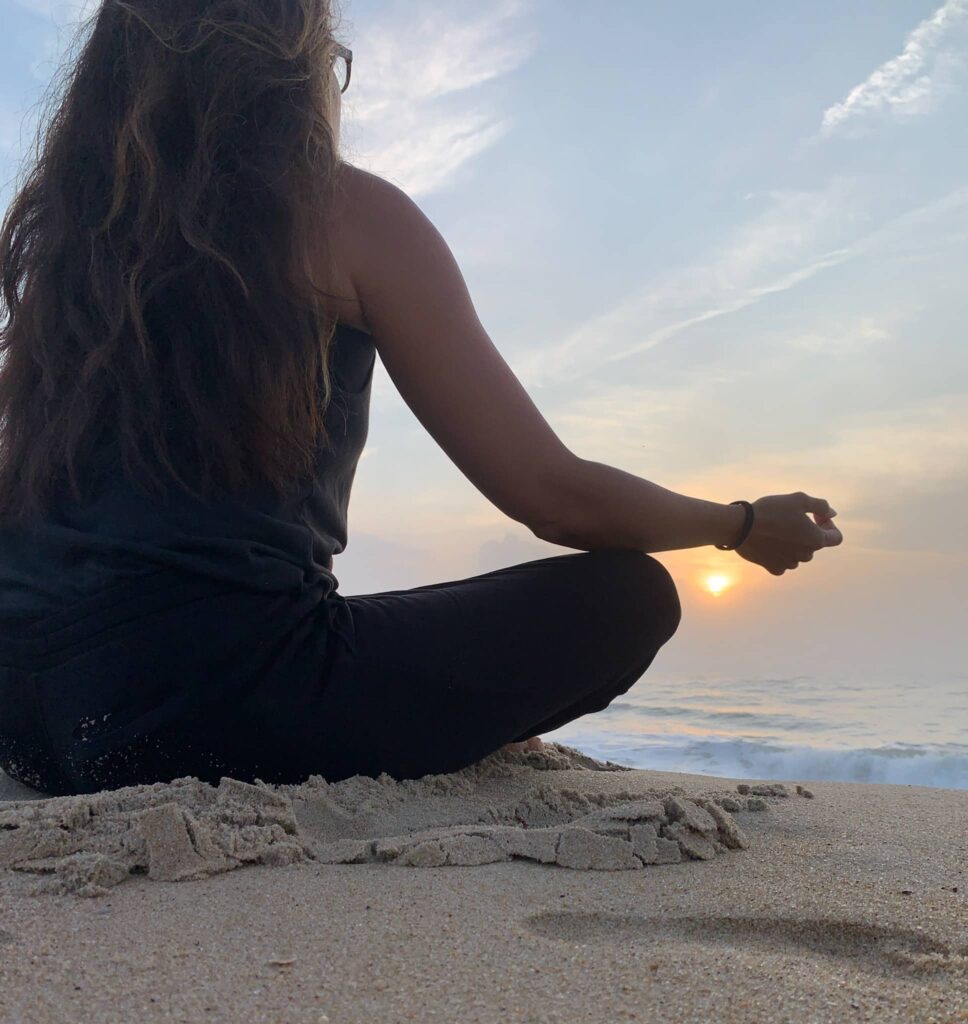15 sleep tips that you can implement right now! If sleep is elusive you will find something in these tips to help!
These 15 tips for better sleep come from my experience of improving my own sleep. I definitely used to struggle with sleep A LOT and I know so many people who do. When sleep is elusive it makes it hard to do all the things that you want to do. I know most of us want to eat healthier, exercise, and do things that are good for us, but quite frankly, many of us just do not have the energy.
During sleep your body detoxifies, recharges, regenerates, fortifies your immune system, balances your hormones, boosts your metabolism, improves brain function, heals and so much more. Getting a good night’s rest is imperative! Sleep is the foundation for everything else.
Sometimes just one change can make all the difference in the world. Sometimes it might take a lot of changes and a lot of experimentation before you find what works for you.
You probably know that most people require 7-9 hours of sleep. Everyone is different. You have to find the amount that works for you. In this post, I’m going to give you 15 tips for better sleep. These tips will help you optimize the time that you have for sleep. I hope you find something useful that will work for you.
15 Tips for Better Sleep
Morning Sun
#1 Sun in the morning. A good night’s sleep starts in the morning. Getting some sunlight in your eyes in the first hour or two after waking helps regulate your circadian rhythm (sleeping and waking cycle), and the hormones involved. At least 30 minutes is optimal. Note that wearing glasses or contacts will not have the same effect.
A good way to do this is a morning walk, eating your breakfast or reading the newspaper outside. Even on a cloudy day, you are still getting the beneficial effects. Sunlight through a window pane may not have the same effect.
If you can’t get some sunlight in the morning, getting sunlight exposure during the day will help as well. The production of melatonin is directly affected by your light exposure during the day and the quantity of light you get in the evening.

Consistent sleep and wake times
#2 Wake up and go to sleep at the same time, even on the weekend. This is a tough one. It’s my natural pattern to sleep in on the weekend if I can. Try to vary your wake up and bed time by only 30 minutes. Your circadian rhythm relies on consistency.
You may find that sleeping in on the weekend makes it harder to get a good night’s sleep on Sunday. This is because when you sleep in, it can result in a form of jet lag where you body gets out of your normal circadian rhythm.
Minimize electronics
#3 Minimize blue light exposure one hour before bedtime. The may be the key to improve your sleep quality immediately. Blue light from electronic devices like computers, televisions and cell phones have been proven to affect melatonin production and therefore affect sleep latency and the quality of your sleep.
If you find yourself having to use a computer or watching television, consider turning it off at least 30 minutes before bed. Some sources, such as Harvard Health, say to avoid looking at bright screens 2 to 3 hours before bed.
You may also want to look into blue light blocking glasses. Blue light blockers minimize your exposure to blue light in the evening. I wear them if I am on the computer late at night, but they do make any screen you are looking at a bit yellow. This won’t affect TV watching but if you happen to be editing photos, it will affect the color.
Bedtime routine
#4 Consistent bedtime routine. Similar to what they say is best for children, it is important to have a bedtime routine. Your body loves knowing what is coming next and when you start your routine, it will know it is time to wind down.
An example of a bedtime routine is one hour before bed, turn down the lights, turn off all electronic devices, drink a cup of chamomile tea, wash your face, diffuse some lavender essential oil, and read for 15 minutes before going to sleep.
Dark room
#5 A dark room is best. Make sure your room is completely dark. This includes making sure there is no light coming in through windows and doors, night lights are turned off, and there is no light from alarm clocks or other electronic devices.
Your skin has light receptors; therefore, even if you wear an eye mask, your skin still knows there is light and it can affect your melatonin production and quality of sleep.
Cool room
#6 A cool room is best. Make sure your room is cool, but comfortable for you. Some sources recommend temperatures between 68-72 degrees and as low as 60-67 degrees.
Warm bath
#7 Try a warm bath before bed. This may seem counterproductive to the item above, but taking a warm bath (not hot) 90 minutes before bed actually helps to drop your core temperature lower, resulting in a better night’s sleep. In addition, the warmth helps you to relax. You can add epson salt to your bath for added magnesium, to soothe sore muscles, and to aid in relaxation.
Exercise
#8 Exercise. Studies show that exercise helps you fall asleep more quickly and improves your sleep quality. You must be tired enough to sleep. Your mind may feel ready but your body may not be ready because there is a lot of unspent energy left. Regular exercise helps ensure your body is tired enough to sleep peacefully at night.
The time of day you exercise may affect your sleep. You may have to experiment for yourself to see what works for you. Since aerobic activity creates endorphins which results in more energy, it is a good idea to complete your exercise two hours or more prior to going to bed.
Curb caffeine
#9 Curb the caffeine. You know your body best, so experiment and see what works for you. Reducing your caffeine consumption during the day and giving yourself a caffeine curfew, like no caffeine after 4 p.m., may help you significantly.
The 10 pm to 2 am window
#10 Make sure you are asleep between 10 p.m. and 2 a.m. The time period of 10 p.m. to 2 a.m. is the period in which you will get the most rejuvenating and healing sleep. If you stay up past 10 p.m. you may experience a second wind. This is because after 10 p.m. your body gets stressed because it is not sleeping and will secrete adrenaline, giving you a boost of energy to sustain your activities. This boost of adrenaline further suppresses melatonin production and gives you a false sense of feeling energized at a time your body wants to be sleeping.
Curb alchohol
#11 Reduce or eliminate alcohol. It’s true…a drink or two in the evening can help you to fall asleep faster. The problem is that is also effects your REM sleep and as a result you will not fall into deeper levels of sleep. Due to the effect on REM sleep, you are less likely to wake up feeling rejuvenated and well rested. In addition, you may find yourself up in the middle of the night and find it difficult to go back to sleep.

Meditation
#12 Meditation. Meditation helps to reduce stress, helps you to relax, and helps you to reduce the inner chatter. You know the inner chatter well, talking to you as soon as you lay down. Suddenly you remember all these things you need to do and you start analyzing something that happened earlier in the day.
Meditation is practicing observing your mind. You are the observer. Your mind is something that you are using while in this body. Meditation helps you realize that you can control what you think about.
When you meditate you strengthen neural networks in your brain, and the benefits you gain are cumulative. Each time you meditate, it comes to you easier and the more presence and mindfulness you will have in your daily life.
There are many ways to meditate; you can use an app like Headspace to do guided meditations, or you can simply sit and observe your breath. The moment you find yourself worrying about what is for dinner, or whether you remembered to put the trash out, you just bring yourself back to your breath. Do not judge yourself or what your mind wanders to, just observe it.
A regular meditation practice helps reduce the mind chatter that many experience before bed. It’s best to meditate in the morning or afternoon. If you meditate at night, you may find that it energizes you. However, there are certain guided meditations that are specifically designed to relax you and help you sleep. Just experiment for yourself and see what works for you.
Another way to help clear your mind before bed is journaling before bed or keeping a pad of paper next to your bed. If you think of something you need to address the next day, you can jot it down so that your mind can rest.
Reduce EMF exposure
#13 Reduce EMF exposure. EMFs are electric and magnetic fields and have been linked to reduced melatonin production. You cannot see them or feel them. They are non-ionizing sources of radiation which are created by anything that uses electricity. To reduce your nighttime exposure, some ideas include: do not plug-in cell phone in the bedroom, put your phone on airplane mode, reduce other electronics and unplug them, and turn off WiFi while you are sleeping.
Wear socks
#14 Wear socks. Cold extremities can result in very restless sleep. I can attest to this personally! A good strategy is to wear socks in the evening to keep your feet warm and when you go to bed, slip them off. Another idea is to put them on before getting into bed. If you find your feet get too hot and you wake up to take them off, you may want to consider making sure they are warm when you get into bed using the previous strategy.
Reduce late night eating
#15 Reduce late night eating. Eating close to bedtime may affect your sleep quality. At the same time, you do not want to go to bed hungry. Try to plan your dinner at a time that gives your body time to digest your meal but doesn’t give your stomach enough time to expect another meal.
Let me know if any of these 15 tips for better sleep work for you! If you enjoyed this post check out An Answer to Stress? The Relaxation Response.
Wishing you amazing sleep!
Laura


Leave a Reply